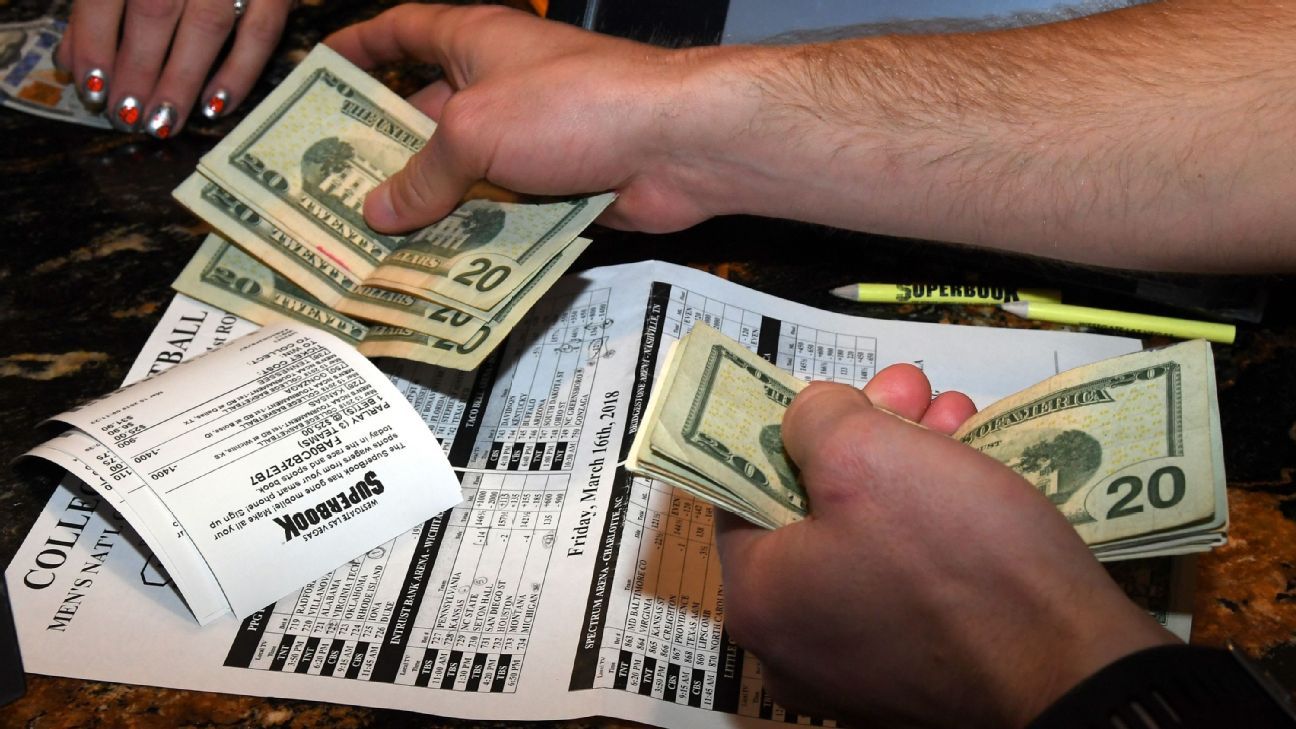ATLANTIC CITY, N.J. — The U.S. gambling industry is adopting a new responsible marketing code that will ban sportsbooks from partnering with colleges to promote sports wagering, bar payments to college and amateur athletes for using their name, image or likeness, and end the use of the terms “free” or “risk-free” to describe promotional bets.
The American Gaming Association told The Associated Press on Tuesday the changes are necessary to keep up with developments in the fast-growing legal sports betting industry, which currently operates in 33 states plus Washington, D.C. The group is the national trade association for the commercial gambling industry.
But they also follow criticism of the gambling industry from regulators and those who treat gambling addiction; several states are outlawing the kind of betting partnerships covered by the code, and others are taking a renewed look at overall sports betting advertising.
One New York congressman has introduced legislation that would ban all online and digital sports betting advertising.
“It has always been important that we get sports betting right,” said Bill Miller, the association’s president and CEO. “It’s always been our No. 1 interest in creating a high bar for responsible advertising and protecting consumers.”
He also acknowledged the updated code takes into account things “that the industry has taken some jabs on.” But he said it was always the association’s goal to proactively update its marketing code; the association will review it annually from now on.
Keith Whyte, executive director of the National Council on Problem Gambling, praised the new rules.
“The AGA’s code is an important standard for the gambling industry, and we are glad to hear about these updates,” he said. “The code is so important because many sports fans are underage, and we also know that people who gamble on sports have higher rates of gambling problems.”
The new rules, to which all the association’s members have agreed, also require that anyone depicted in sports betting advertising be at least 21 years old. They also restrict advertising to media where at least 73.6% of the audience is reasonably expected to be 21 or older.
Although the new rules take effect immediately, companies that have existing advertising campaigns in place that would be affected by them will be allowed to continue them until July 1.
There are five partnerships between the gambling industry and colleges that promote or advertising sports betting.
They include a deal between Michigan State University and Caesars Entertainment and one between Caesars and Louisiana State University that led to the university sending emails to students — including some who were too young to legally bet — encouraging them to “place your first bet [and earn your first bonus].”
The University of Colorado Boulder’s 2020 deal with sportsbook PointsBet included a $30 referral bonus every time someone signed up on PointsBet with the university’s promo code and placed a bet. In January, the university ended the referral bonuses but the larger deal remains in place.
PointsBet also has a deal with Maryland, and Superbook has one with the University of Denver.
Individual states are moving to require what the association is doing on its own.
The New York State Gaming Commission adopted rules in February prohibiting advertisements being sent to people under age 21, and banning the use of language such as “free” or “risk-free” in promotions — something most of the major sportsbooks have already done on their own.
Ohio recently fined three sportsbooks for such terminology, and Massachusetts and Pennsylvania are among states that also ban its use. Ohio also fined DraftKings for sending direct mail advertisements to people younger than 21.
New Jersey has a pending bill to prohibit sportsbook partnerships with public colleges or universities, and one that “condemns the over-proliferation of pro-gambling ads in New Jersey.”
U.S. Rep Paul Tonko, a New York Democrat, has introduced a bill that would prohibit online and digital sports betting advertising.
“In the years since the Supreme Court legalized sports betting, these unfettered advertisements have run rampant, with betting companies shelling out billions to ensure they reach every screen across America,” he said. “Congress must take the necessary steps to reel in an industry with the power to inflict real, widespread harm on the American people.”
And on Monday, U.S. Sen Richard Blumenthal, a Connecticut Democrat, wrote to 66 colleges and universities asking for information on their efforts to form partnerships with sportsbooks, to prevent underage gambling among students, and treat gambling addiction.
